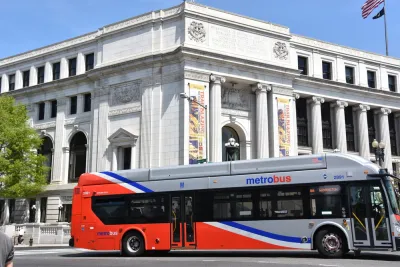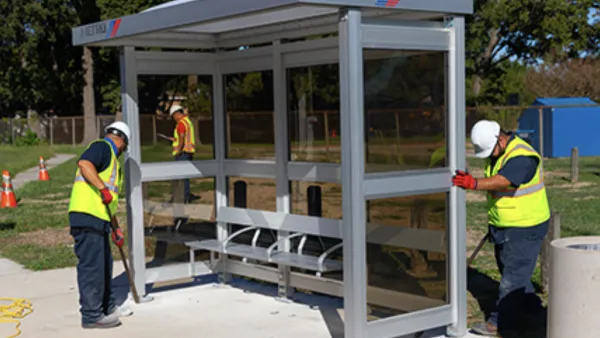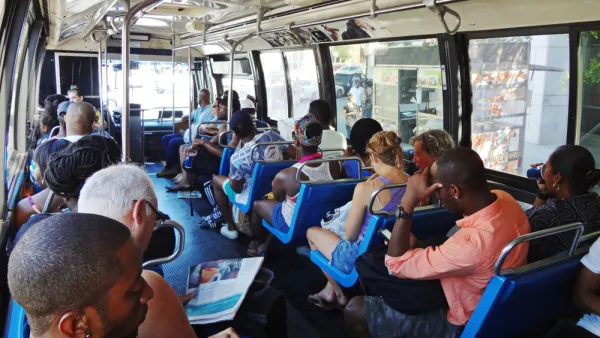Bus ridership is down in the nation's capital. Some see the issue as an opportunity to better design the service to make dollars go further.

Some officials hope to borrow lessons from Houston's redesign of its bus service to try to turn around falling ridership numbers. "It’s a strategy that is being pushed by the Washington region’s leaders, eager to see Metro seize opportunities to save money and 'right-size' service — essentially, to eliminate buses that consistently fail to run at capacity. A bus network overhaul was among the ideas recommended by former U.S. Transportation Secretary, Ray LaHood, in his recently released report on how to fix Metro’s structural and financial problems," Martine Powers writes for the Washington Post.
Why buses in D.C. are losing riders is a subject of debate, some say that now-completed train projects make that service more attractive, others point to lifestyle changes taking more people away for 9-to-5 schedules that the system was built around, and the growth of bike-share and ride-share are likely part of the equation as well.
In Houston, "officials focused on providing more frequent service throughout the day rather than clustering their efforts around the morning and evening peak periods," Powers writes. The system also moved away from a hub-and-spoke system to a grid system. "The effects on ridership are heartening: in the first year after the redesign, Saturday ridership increased by 15 percent, and Sunday service was even more popular." But some paint a less rosy picture of Houston's update, arguing that the city sacrificed equity when it cut service to areas with less ridership, which were often poor and minority.
The Houston bus redesign didn't end up saving the city money, but backers argue that boosting ridership on buses is a lot cheaper than adding transit services by any other means. They contend that, while costs went up, those dollars go further when they're spent on bus transit.

Analysis: Cybertruck Fatality Rate Far Exceeds That of Ford Pinto
The Tesla Cybertruck was recalled seven times last year.

National Parks Layoffs Will Cause Communities to Lose Billions
Thousands of essential park workers were laid off this week, just before the busy spring break season.

Retro-silient?: America’s First “Eco-burb,” The Woodlands Turns 50
A master-planned community north of Houston offers lessons on green infrastructure and resilient design, but falls short of its founder’s lofty affordability and walkability goals.

Test News Post 1
This is a summary

Analysis: Cybertruck Fatality Rate Far Exceeds That of Ford Pinto
The Tesla Cybertruck was recalled seven times last year.

Test News Headline 46
Test for the image on the front page.
Urban Design for Planners 1: Software Tools
This six-course series explores essential urban design concepts using open source software and equips planners with the tools they need to participate fully in the urban design process.
Planning for Universal Design
Learn the tools for implementing Universal Design in planning regulations.
EMC Planning Group, Inc.
Planetizen
Planetizen
Mpact (formerly Rail~Volution)
Great Falls Development Authority, Inc.
HUDs Office of Policy Development and Research
NYU Wagner Graduate School of Public Service



























